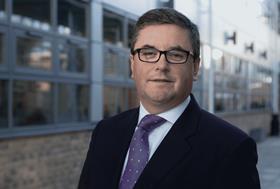Pro bono is not a substitute for legal aid, the solicitor-general has insisted, after chairing a newly established panel to 'promote and coordinate' lawyers' voluntary efforts.

The panel, made up of the Law Society, Bar Council, Advocates for International Development and the Chartered Institute of Legal Executives, met for the first time last month. Robert Buckland MP told the Gazette the panel will provide advice and strategic direction to the attorney general's pro bono committee 'and work with them to make sure progress is being made'.
Issues discussed at the meeting include the often-mooted compulsory levy on big City firms, although the Gazette understands no decisions have been made. Earlier this month, Greater Manchester Law Centre asked the city's mayor, Andy Burnham, to introduce a levy for corporate law firms to help fund pro bono advice.
Buckland praised the legal profession's response to the Grenfell Tower fire in June. 'It just shows lawyers in such a positive light, being part of the community in which they serve,' he said.
A pro bono panel of solicitor firms, convened by the Law Society, charity LawWorks and the City of London Law Society, was established following the terrorist attack in London Bridge in June.
Manchester Law Society received an 'overwhelming' response to its plea for pro bono advice soon after the attack on Manchester Arena in May.
Buckland insisted pro bono 'is not a substitute for legal aid. It's certainly part of a strong public service ethos of solicitors, barristers and legal executives'. His job, as a law officer, is to 'bring people together and contribute best practice'.
Buckland also chaired the first meeting of a newly established public legal education panel to help teach people about the law, and their basic civil and criminal rights, such as knowing if a person is entitled to refund or whether they have been a victim of discrimination.
Members include the Society, Citizenship Foundation, Bar Council, Magistrates' Association, Solicitors Regulation Authority, Ministry of Justice, Judicial Office, Citizens Advice and the Law Centres Federation.
Buckland said the panel will work in smaller groups to establish as much information as possible about the extent of the need for public legal education. Evidence and research-based knowledge will help to identify where public legal education is required, and where it is and is not working.
'Our aims are bold,' Buckland added. 'We will be able to provide high-quality public legal education which has a significant social and economic reach.' Innovative thinking is also required, he suggested. 'It's not just about lawyers walking into schools. It's about the use of technology, also spreading information.'



























1 Reader's comment